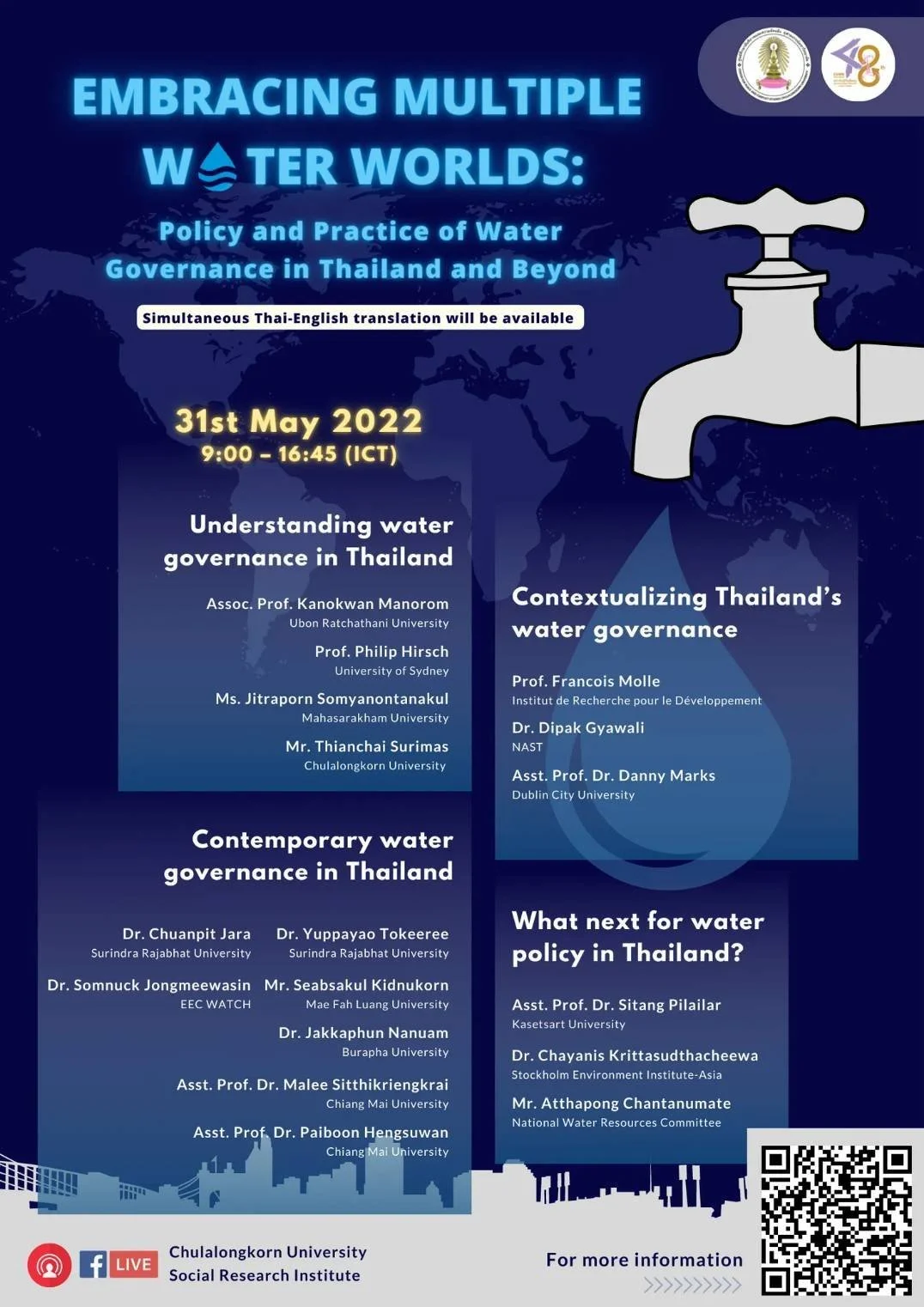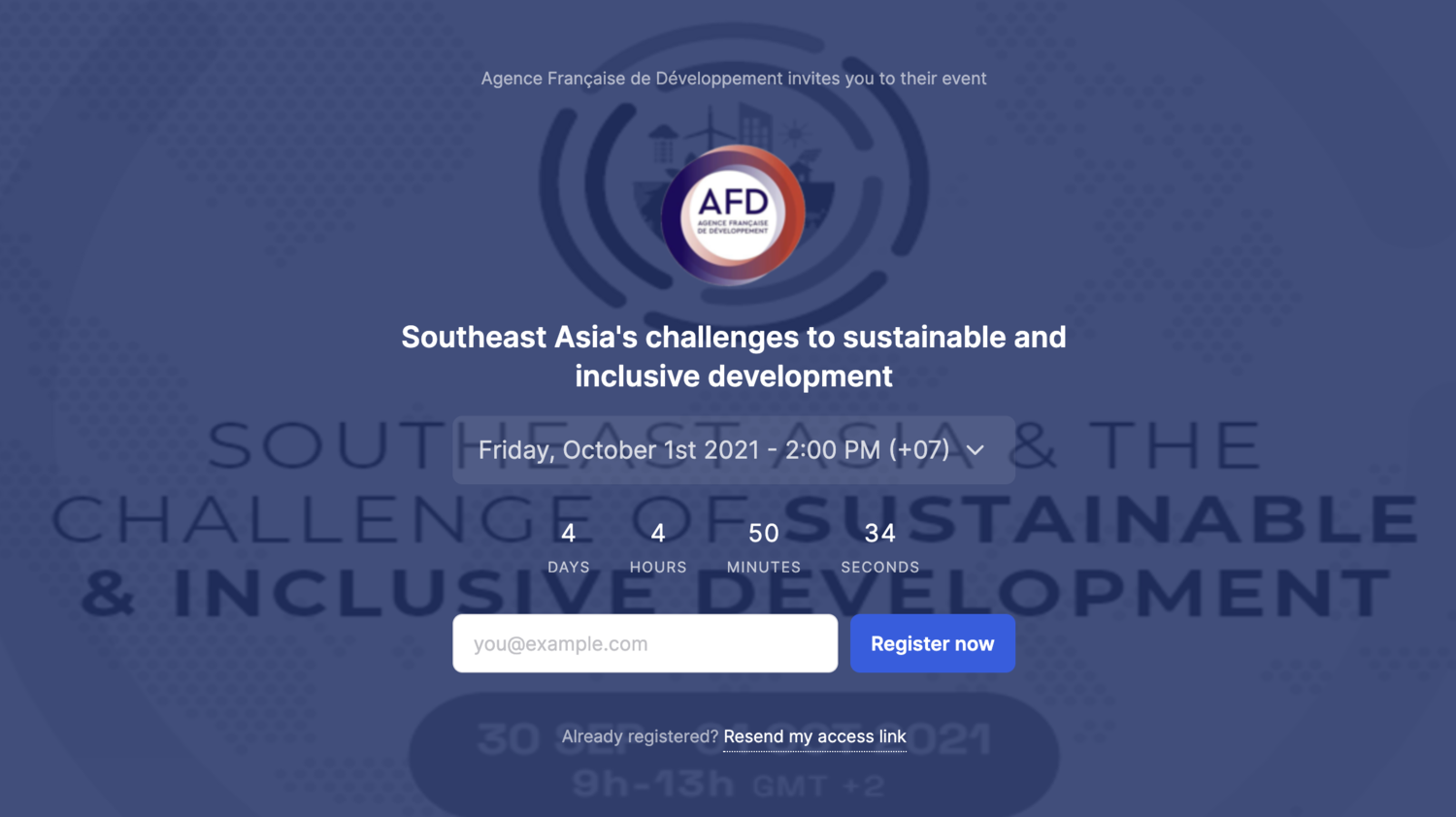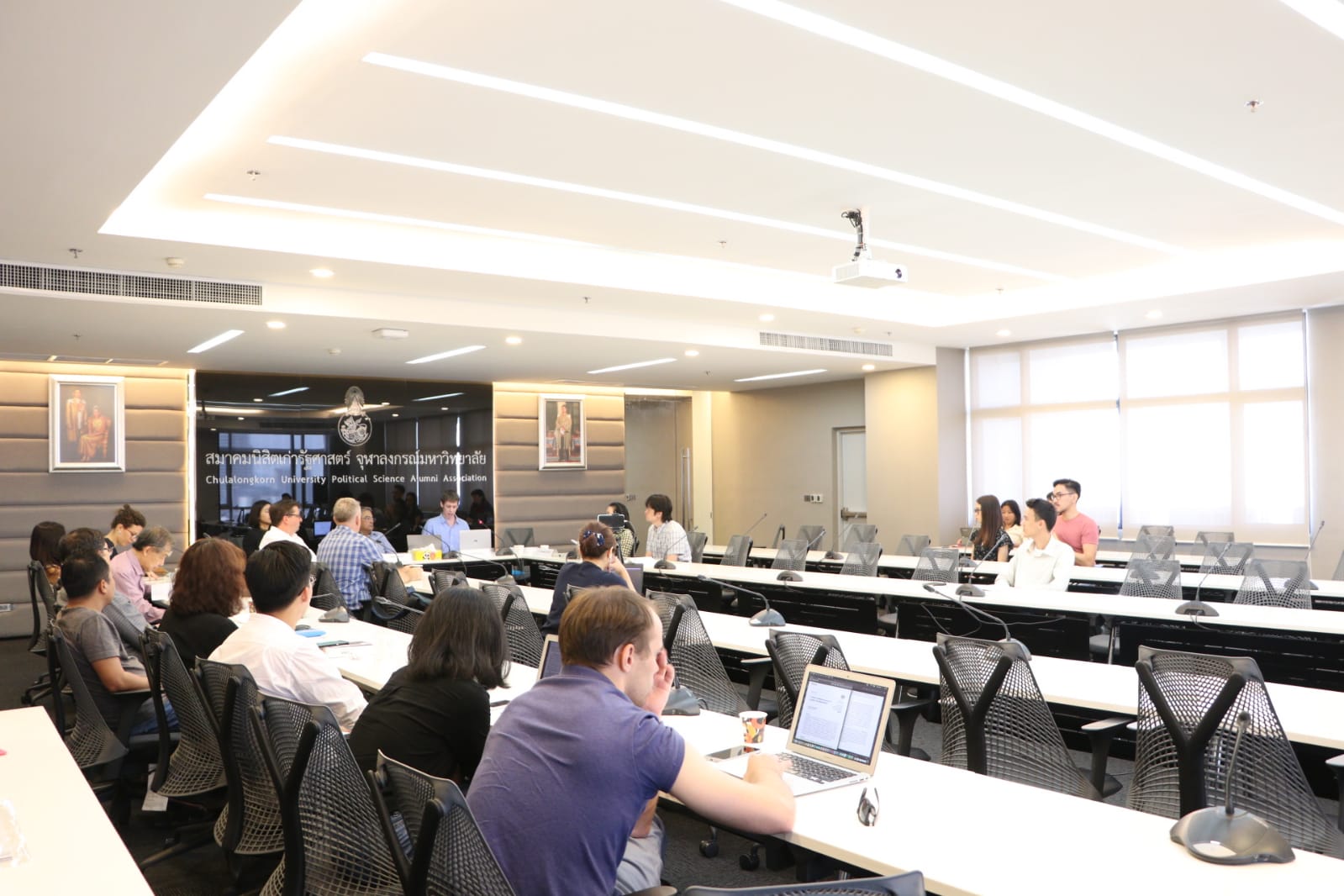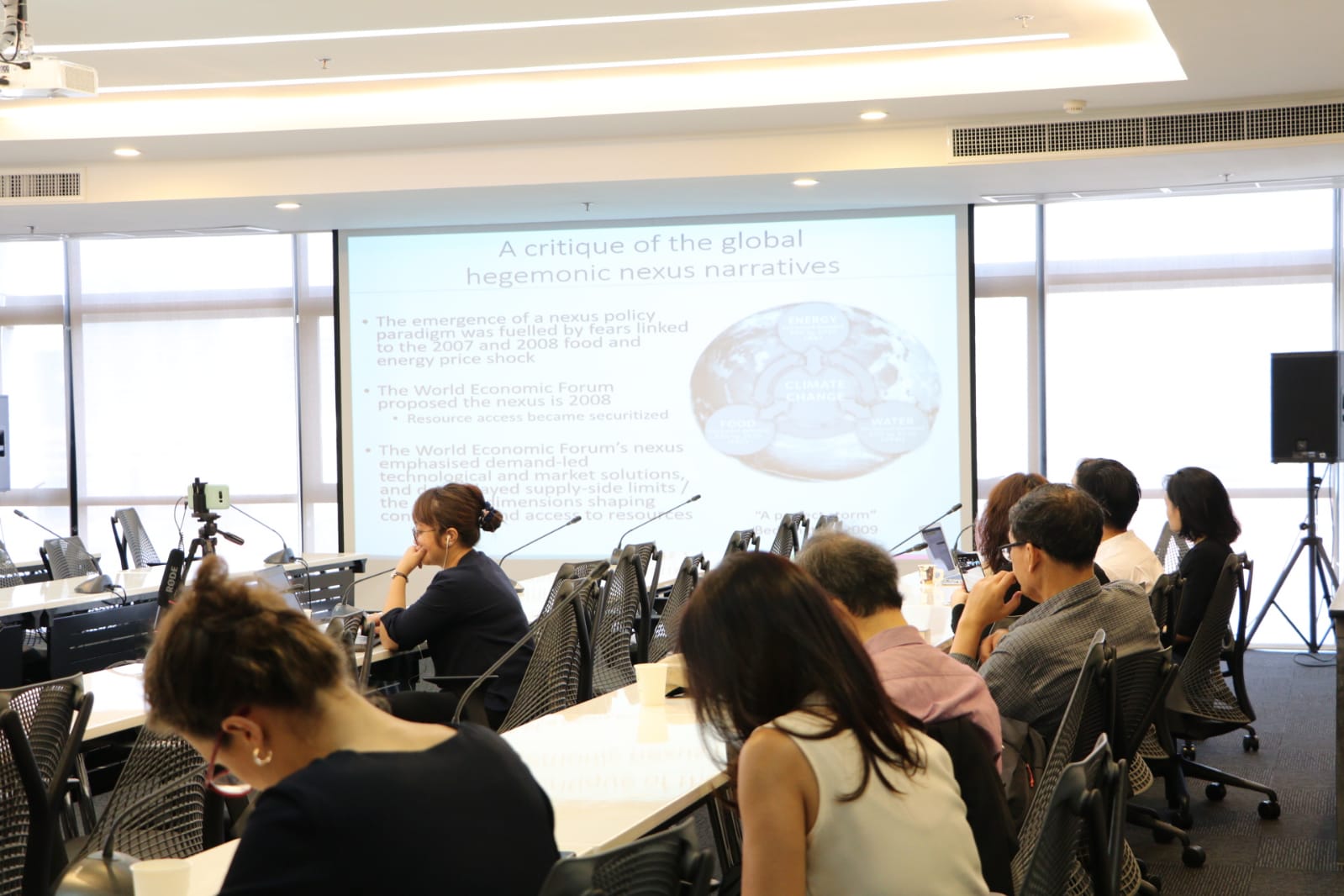Carl Middleton from CSDS was one of the speakers for the online webinar organized by Metropolis Asia-Pacific titled “Report on the UN Climate Change Conference and the Impact of Climate Change on Migration in South East Asia”.
The full panelist for the event are:
Opening remarks: Imelda M. Nicolas, Former Cabinet Secretary, Commission on Filipinos Overseas, Co- convener, Metropolis- Asia
Moderator: Tasneen Sidiqui, University of Dhaka, Banglades
Closing Remarks: Binod Khadria, Former Professor, Jwaharlal Nehru Univ, Indida, Co- convener, Metropolis- Aisa
Speakers: Ouvais Samad, Deputy Executive Secretary, United Nations Framework Convention on Climate Change (UNFCC), Bonn, Germany Kristin Marie Dadey, Chief of Mission, International Organization for Migration (IOM), Manila, Philippines Carl Middleton, Director, Center for Social Development Studies (CSDS), Chulalaongkorn University, Bangkok, Thailand
A recording of the event can be found here


























